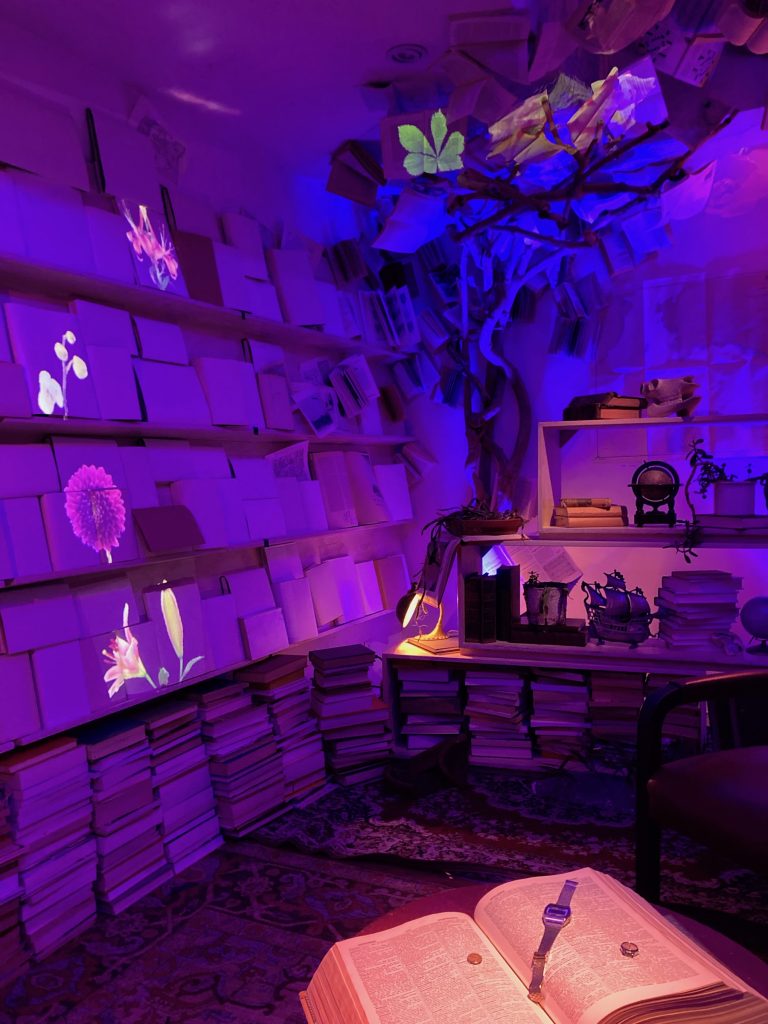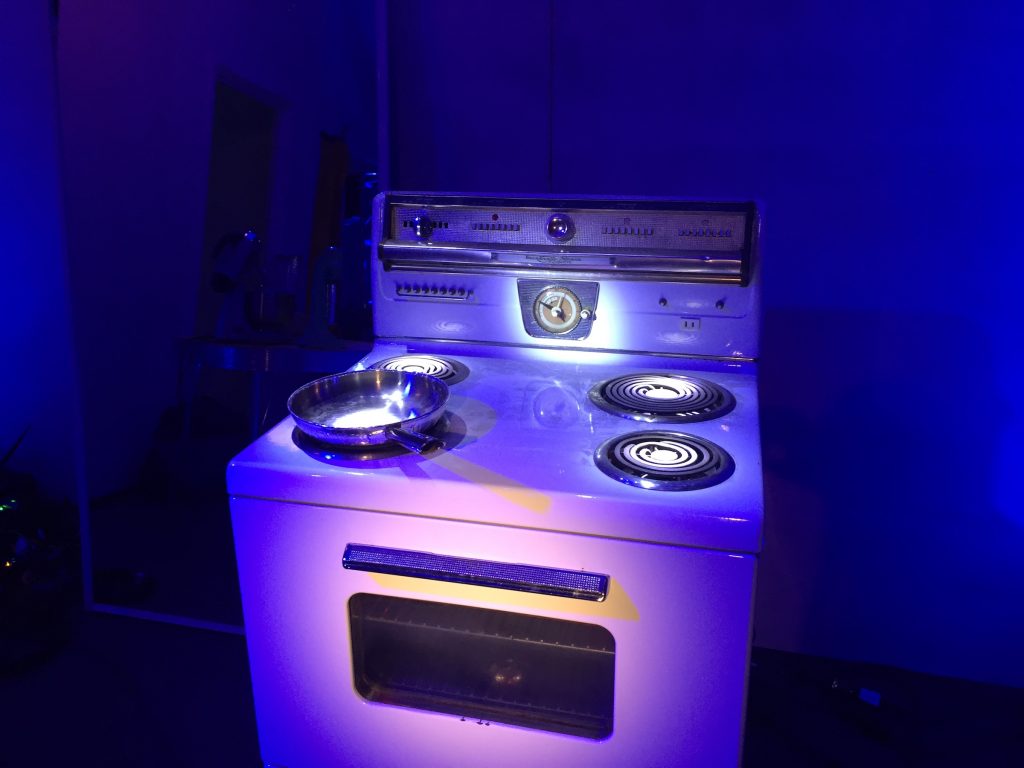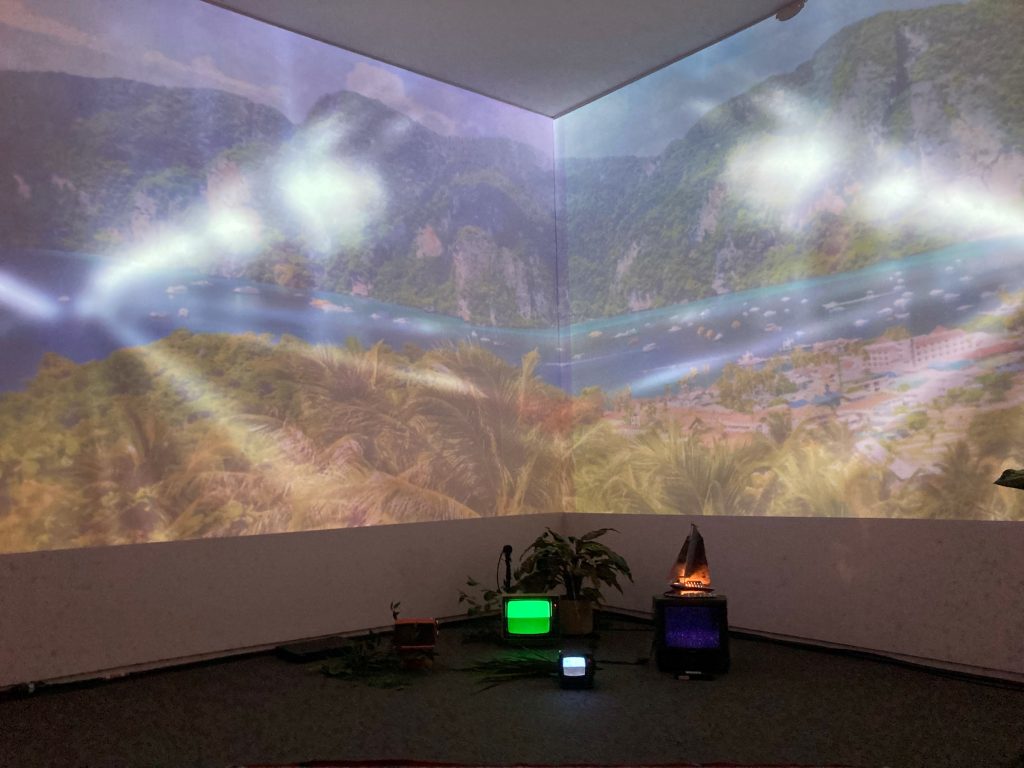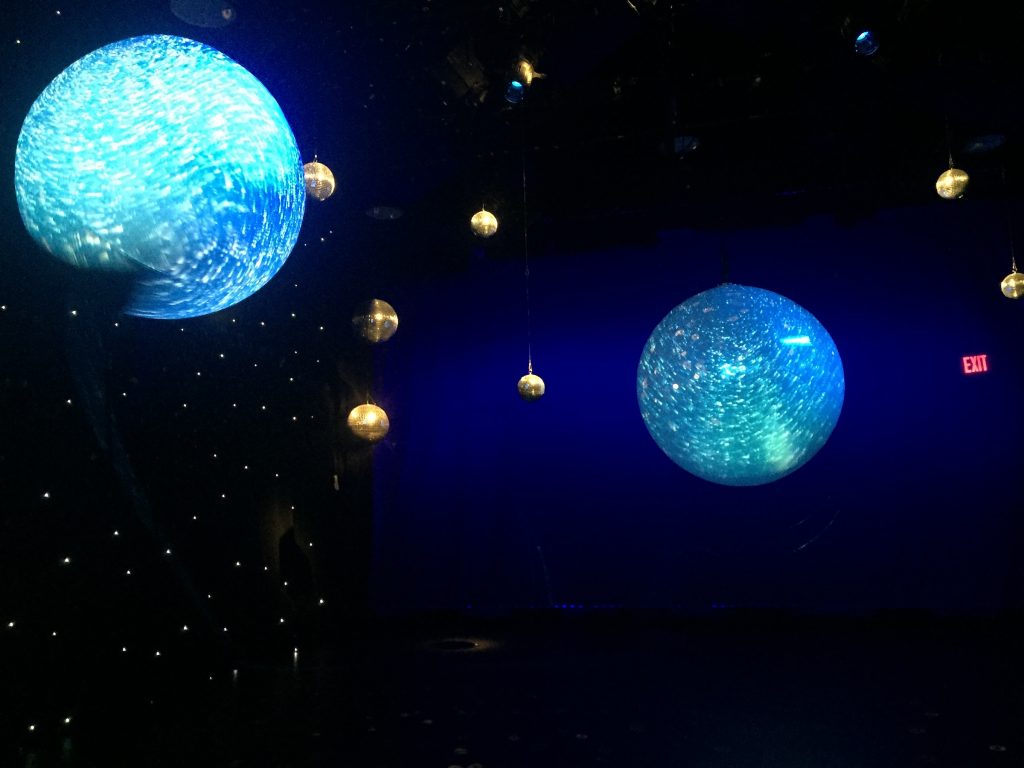
At Presentation House, Tuesdays through Sundays, until August 22, 2021
Tickets from $29.66 at electriccompanytheatre.com
Posted August 7, 2021
It was only a matter of time until we began seeing theatrical expressions of what it’s like to live through a global pandemic. Conceived and directed by Kim Collier and written by Kendra Fanconi, the Electric Company Theatre has boldly gone where no one – or few – have yet gone. Originally planned for April 2021, The Magic Hour, “an immersive theatrical experience”, has arrived in North Vancouver’s Presentation House.
With the upstairs gallery now re-located, the whole building is available for The Magic Hour: upstairs, downstairs and in all the various nooks and crannies of the venerable old building. It’s a “timed entry” show: every 3-5 minutes a single person is admitted after instructions about how to move through what is an exhibit rather than traditional theatre. (It is possible to go “tandem” with another person if desirable or necessary – help on stairs, for example). There are no actors only a gentle, lulling voice-over; “Now” is the directive to move to the next room.
“What has gone missing in this very long time you have been waiting?”, the narrator asks and room by room, the answers are explored: the library, the washroom, the kitchen, the living/dining room and finally the forested lounge.

If there is a star of this show it clearly is the design team: the attention to detail is remarkable, highly creative and the lighting/ lighting effects by Innovative Lighting are fantastic. The Electric Company Theatre (ECT) and Kendra Fanconi have done this site-specific immersive theatre before on a smaller scale. But scale, like the pandemic itself, is huge here.
I was not, however, as engaged as I hoped I would be. There is in the show an effort to conflate the pandemic with the climate crisis and, although an argument can be made that there is a relationship, it feels forced and sometimes obscure.
There were other times when I did feel engaged: in the library, for example, I responded to the suggestion of a general weariness with books. After Netflix and Crave started to be boring, my go-to was reading. But just how many hours can one sit reading? However, just how that particular room relates to global warming as well as the pandemic requires some mental agility: deforestation for paper/the excessive requirement for water in the process/toxicity of ink/shipping/recycling?
The moment where I really connected was in the living room/dining room: a lovely old dining room table, one chair and a place setting for just one person. That, going back to “what has gone missing”, really struck a chord: all the birthdays uncelebrated, the families gatherings not held, the dinner parties that didn’t happen. That moment really resonated and I appreciated having a long moment to reflect on it.

Interestingly, the best part of my evening was a post-show conversation with the always passionate, always articulate Kim Collier. Like Collier, I am constantly plagued by fears of and anger over global warming: top of every news item these days are the wildfires here, the floods elsewhere, melting glaciers, starving polar bears. I look across to Westcoast Terminal and hear the pile driver all day long as the pipeline expansion goes ahead despite local and Tsleil-Waututh objection. And I think deeply about the pandemic and how it might change us forever. There’s no going back. Do we even want to?
Collier made an interesting point and, who knows, maybe the world will begin to think globally: at no time in history have all nations fought a common, immediately recognizable, indisputable threat: Covid-19. Sure, there have been wars and revolutions but mostly they happened elsewhere and never world-wide. The virus, on the other hand, is everywhere and it requires global cooperation to beat it. Maybe – ironically – Covid-19 presents an opportunity to create a brave new world.

Collier believes one of the jobs of the arts – probably the most important one – is to raise issues and to keep them at the forefront until we can no longer be complacent and that we are, finally, moved to action.
The Magic Hour is a gentle touch. There’s no sledgehammer; you are invited to reach your own conclusions, to bring your own experience to the table. I suppose I had wished for more fire in the belly to match my own. However, that generally does not make for good theatre.
It’s an interesting experience and it might resonate long after you leave. That, to my mind, is always a sign of theatre that is both entertaining and relevant.

